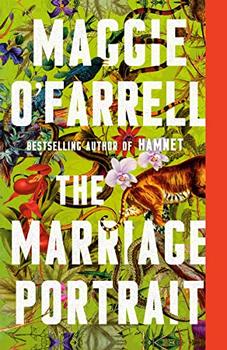Summary | Excerpt | Reviews | Beyond the book | Read-Alikes | Genres & Themes | Author Bio

A fifteenth-century Eat, Pray, Love, Revelations illuminates the intersecting lives of two female mystics who changed history - Margery Kempe and Julian of Norwich.
Bishop's Lynn, England, 1413. At the age of forty, Margery Kempe has nearly died giving birth to her fourteenth child. Fearing that another pregnancy might kill her, she makes a vow of celibacy, but she can't trust her husband to keep his end of the bargain. Desperate for counsel, she visits the famous anchoress Dame Julian of Norwich.
Pouring out her heart, Margery confesses that she has been haunted by visceral religious visions. Julian then offers up a confession of her own: she has written a secret, radical book about her own visions, Revelations of Divine Love. Nearing the end of her life and fearing Church authorities, Julian entrusts her precious book to Margery, who sets off the adventure of a lifetime to secretly spread Julian's words.
Mary Sharratt vividly brings the medieval past to life as Margery blazes her trail across Europe and the Near East, finding her unique spiritual path and vocation. It's not in a cloistered cell like Julian, but in the full bustle of worldly existence with all its wonders and perils.
I had mixed feelings about the protagonist in a way that demonstrates how well this character is crafted, admiring Kempe's pluck while also finding her obnoxious at times. I absolutely loved her ambiguities and contradictions. Sharratt's excellent characterization is unfortunately limited to Kempe herself; almost every other person is drawn without nuance. This is a relatively large flaw, but the other details are so well rendered that it mostly didn't impact my high opinion of the work...continued
Full Review
 (801 words)
(801 words)
(Reviewed by Kim Kovacs).
 In Mary Sharratt's historical novel Revelations, the protagonist is tried for heresy when suspected of preaching the tenets of Lollardy, a medieval religious movement that deviated from the Roman Catholic Church's approved doctrine.
In Mary Sharratt's historical novel Revelations, the protagonist is tried for heresy when suspected of preaching the tenets of Lollardy, a medieval religious movement that deviated from the Roman Catholic Church's approved doctrine.
At the beginning of the 16th century, Roman Catholicism was the dominant religion in Europe, led by a church hierarchy with the Pope at its head. A schism known as the Protestant Reformation began in 1517, resulting in congregations breaking from the established church and rejecting the Pope's authority. Protestantism didn't arise in a vacuum, however, and some of the beliefs espoused by the reformers were first proposed more than a century earlier by English theologian John Wycliffe (c. 1328-1384).
A...

If you liked Revelations, try these:

by Allegra Goodman
Published 2025
A young woman and her lover are marooned on an island in this breathtaking saga, an epic story of love, faith, and defiance from the bestselling author of Sam.

by Maggie O'Farrell
Published 2023
The author of Hamnet - New York Times bestseller and National Book Award winner - brings the world of Renaissance Italy to jewel-bright life in this unforgettable portrait of the captivating young duchess Lucrezia de' Medici as she makes her way in a troubled court.